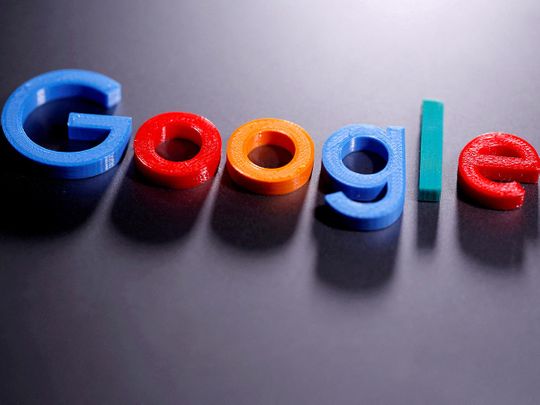
There was a lot of news this week about artificial intelligence. (There's a lot of AI news every week.)
Here are three takeaways of what it means for you that AI is coming to Google search, Gmail and Microsoft Office:
Google's new AI will start replying to some searches by sorting information in different ways
One example from Google: If you're shopping for a bicycle for your hilly five-mile commute, you might see an AI-organized list of bikes with photos and descriptions of their notable features. You don't need to dig into a bunch of links to compile that information on your own.
I'm curious to try Google AI search - you can sign up at labs.google.com to join a wait list. I'm also skeptical of how useful this AI-infused information will be.
One Google executive said on Wednesday that AI search is about "connecting you to the best of the web." But that is Google's job today, and it's not always good at it, especially when there is no "right" answer.
Here's what Google often does well: Search for "NBA playoffs" or "How tall is Taylor Swift?" I see recent basketball game scores and an answer of 5-foot-11 for Swift. Pretty good, right?
Google is plucking facts from its databases or snippets from the internet to give you an answer rather than a bunch of links. These answers are controversial because they stop you from leaving Google for Priceline, Yelp or a Washington Post article. But this is often helpful.
Now type into Google more subjective questions like "is milk bad for you?" the "best bicycle for a five-mile commute," or the best pediatricians in Dayton, Ohio. Google might again suggest answers by highlighting information from the web or from Google's databases.
Google's answers for these types of questions are sometimes wildly wrong or benefit Google at your expense. The responses might not be useful or personalized to your needs.
Google's experimental AI search will let you ask complex queries and follow up questions in a way you can't with conventional search. We should try the new search for ourselves and keep an open mind.
But AI search also is a souped-up version of its existing answers. That means AI search could be a technically sophisticated Band-Aid on a structural problem: The internet is full of garbage. And the web may simply be a bad place to get good answers.
It's a big deal to put AI in technologies that you already use
Most of the AI attention recently has focused on new chatbots such as ChatGPT and Google's Bard. But let's be real. It's hard to make space in your life for new technology.
That's why, even with my doubts about Google AI search, it's a big deal that Google and Microsoft said this week that they're adding new forms of AI into technologies that you already use including Google search, Gmail, Google Docs and Microsoft Office.
Google, for example, said this week that AI will soon help you draft emails and other writing. If you need to come up with a job description for, say, a technology newsletter writer at The Washington Post, you can soon ask Google Docs to create a draft for you.
Microsoft is making similar promises with its "co-pilot" AI features for Office. You might soon be using text-generating AI to summarize a business meeting for you or guide you through creating a PowerPoint presentation.
I'm again curious to try these writing helpers but also mindful that they may not be magic.
I pasted my Tuesday piece about my birdwatching hobby into Microsoft Bing's AI chatbot and asked for funny headline suggestions. They were terrible.
Even with my brilliant colleagues, brainstorming headlines always generates bad ideas. But Bing's suggestions were so awful that I didn't want to keep spitballing.
These chatbots are still crude. And you might find them better writing partners than I did.
I'm also not good at the art of "speaking" chatbots' language, including going back and forth to refine the AI-generated text.
I'll put in the effort to learn only once I believe the investment is worth it. I'm not there yet.
Don't get too excited or disappointed about any new AI thing
Technologists have a terrible track record of predicting what will turn out to be life-altering inventions. So do economists.
Don't believe anyone who confidently says that new forms of AI will change the world, kill Google search or put you out of work. No one knows anything.
We and tech companies are still learning the best uses for AI that generates text or images at your command - and where it might be an expensive, overly complicated and unhelpful dead end.
I admitted to someone this week that I've been using AI chatbots like I use Google search, and that might be completely the wrong approach.
This phase of AI is full of laboratory experiments in public with you and me as guinea pigs. I think that's mostly good, but it is going to be messy.
Somewhere on Reddit's massive online community, people have probably discussed whatever topic you're looking into right now.
If you type a search term and add "+Reddit" to the end, you will see recommendations from real people on Reddit that might beat anything you'll find from a search engine. (Doing a search on Reddit is inferior to using Google to search Reddit.)
This week, I tried both Bing's AI chatbot and a Reddit search to find things to do on my upcoming vacation in Cape May, N.J.
The Bing chatbot recommendations were meh. The Reddit trick for a similar search turned up multiple conversations in Reddit forums that I found more useful.
Reddit has problems with garbage information, too, and I still prefer to ask people I know for subjective questions like what to do on my vacation. But for this head-to-head match up between an AI and Reddit, I think Reddit won in a landslide.






_resources1_16a30b3fb8b_small.jpg)




